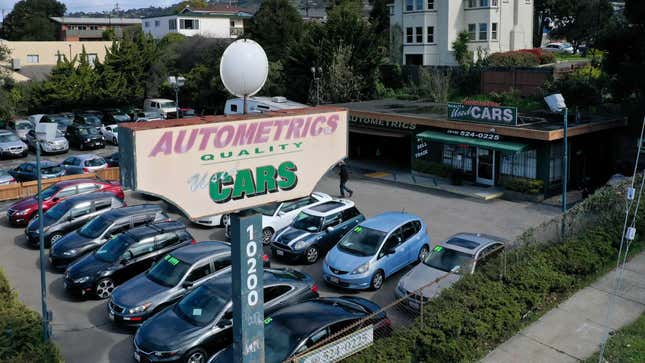
Consumer Reports took an in-depth look at the practices of two of the largest subprime auto lending banks in America, and the results were grim: Predatory lenders focus their services on poorer people in desperate need of a car because they make money on defaults as well as successful loans. Subprime lenders have built a win-win scenario where the only losers are the already struggling borrowers themselves.
The report focused on the scammy actions of Credit Acceptance and Santander Consumer USA, both of which have been the subject of investigations in their shady practices. Indeed, we reported last year that Credit Acceptance was under investigation in 44 states. CR did a deep dive and found a system that sets up borrowers to fail because, either way, the lenders still make a profit:
Moreover, even when Santander and Credit Acceptance have a borrower who defaults, they still manage to make a profit, the state attorneys general in Mississippi and Massachusetts have alleged in lawsuits filed against the lenders, using a variety of tools to “squeeze as much money out of delinquent borrowers as possible,” as one put it. (Santander and Credit Acceptance reached settlements in those cases, neither admitting nor denying wrongdoing.)
Those methods, according to a Consumer Reports review of regulatory filing and legal documents, sometimes start with lenders working with dealers to mark up cars sold to low-income borrowers more than they do for customers with better credit, or to upsell them into pricier cars they can’t afford. Lenders are also accused of structuring the loans and their arrangements with dealers in ways that all but guarantee a profit even if borrowers default, the attorneys general say.
And when borrowers fall behind, as often happens, lenders aggressively work to collect debts through repossession and wage garnishment, according to allegations in the documents CR reviewed.
“There are some lenders with a business model, it seems, that expects some level of repossession, perhaps even desires some level of repossession,” says Pamela Foohey, a professor at the Benjamin N. Cardozo School of Law in New York City, who has published several studies on auto lending.
In the the third quarter of 2021, Credit Acceptance and Santander reported net profits of $250 million and $763 million, respectively, over the preceding three months.
In other words, it’s good business writing bad loans.
And default, as many do. These subprime lenders argue the high APR is because they’re taking on more risk, but that doesn’t actually pan out. Borrowers with lower credit scores often receive higher APR rates from auto loan companies than if they went through a traditional bank or credit union. Those with the higher APR were also more likely to default. When defaults happen, the impact on people’s lives is catastrophic. Take this case from the CR report:
In one example from the lawsuit, a consumer with a low income purchased a Nissan Altima sedan with a six-year loan from Santander that carried a $445 monthly payment and an interest rate of 21 percent. Her monthly income at the time: roughly $1,200.
“She worried the monthly payment was too high,” the state attorney general’s complaint said, “but she needed a car immediately and convinced herself she could handle the payments.”
That turned out to be too optimistic. She fell behind on the bill, allegedly leading Santander to hound her with relentless calls to collect. Eventually, she succumbed to bankruptcy to avoid having the car repossessed.
It can be an all consuming debt that can take decades to be cleared from. Author of the CR story, Ryan Felton, also looked into these loans when he worked here at Jalopnik. He found over 2,000 people had cases for wage garnishment by Credit Acceptance brought against them 20 years after the loan was issued in the city of Detroit alone. In a country where the majority of Americans need a car to get around these practices are, pardon the pun, highway robbery.
I highly encourage you to read the entire infuriating story.